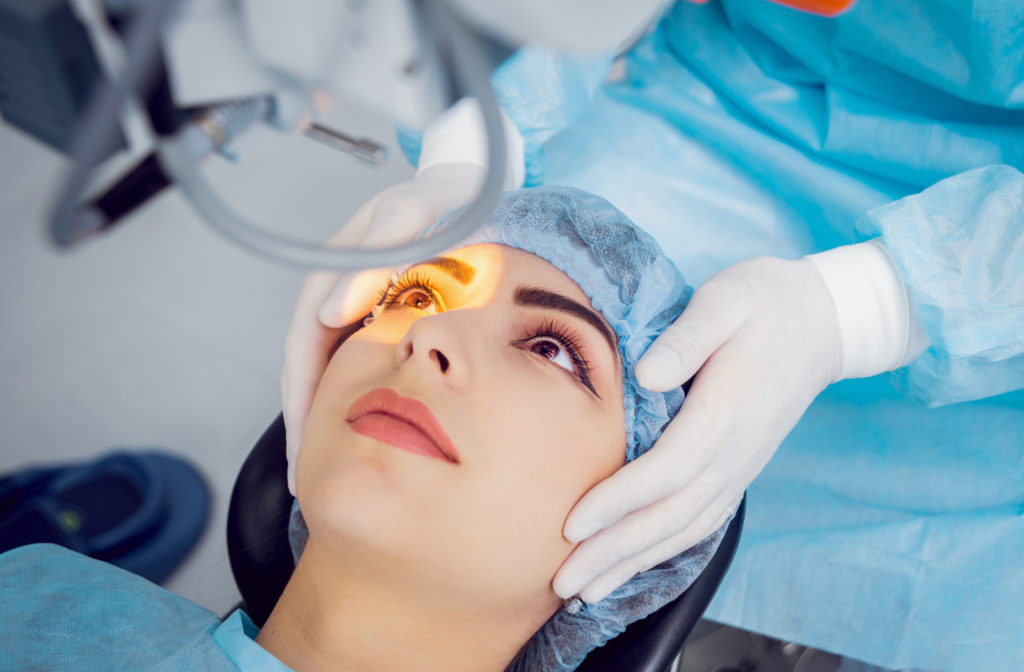What kind of eye problem are you experiencing?
Does it feel like there is something stuck in your eye? Do you wake up with redness and crustiness around your eyes and eyelid? Or do you find it’s getting harder to work on digital screens or read for long periods?
At some point, we can all experience some form of eye problem. When this happens, the question we often ask ourselves is, “Where can I find help?”
Now, we all know what the answer is: you visit a doctor. But, how do you know which eye doctor to visit and when? Depending on your issue, you might need to visit an optometrist, ophthalmologist, or you might even need to visit an emergency room.
The trick is knowing which is the right choice for you and your issue.
Why See an Optometrist?
Who Are They?
In the simplest of terms, optometrists are eye doctors. They have spent years studying sciences and medicine to earn their doctorate, and are going to be your main point of contact for almost everything related to your eyes.
Optometrists are usually the doctors responsible for performing comprehensive eye exams, which checks your vision quality and can diagnose eye diseases.
How They Can Help
Your optometrist can look for the source of your eye problem and recommend or prescribe different solutions to help you see better or help your eyes feel comfortable.
Different problems need different treatments. If you have dry eyes, your optometrist can recommend eye drops, punctal plugs, or heating solutions.
For blurry vision, they can prescribe glasses or contact lenses to correct your vision, or they could examine your eyes to find the source of your blurriness. In some cases, things like eye strain or eye disease can cause poor vision.
If you have an eye disease, like glaucoma, they can help manage it to prevent harm to your vision. In some cases, they can recommend specialists, like ophthalmologists, to help treat your eye problem. Some states limit what kind of eye diseases optometrists can treat, but they can always refer to an ophthalmologist for further help.

Why See an Ophthalmologist?
What Are They?
Just like optometrists, ophthalmologists are eye doctors. However, the main difference here is that ophthalmologists are often referred to patients when they need an eye surgery or specialized treatment.
They can spend up to 4 years in post-secondary studying sciences, another 4 years in medical school, and as much as 4 to 5 years in residency specializing in ophthalmology.
How They Can Help
Ophthalmologists are often recommended by your optometrist, depending on your eye problem. They can perform surgeries including LASIK, PRK, and cataract surgery, and can provide more in-depth treatment for eye diseases like glaucoma or age-related macular degeneration.
Ophthalmologists can also perform eye exams and are capable of treating other conditions like dry eye.
Why Visit the Emergency Room?
What is It?
Chances are you already know, or at least have some sort of idea, of what an emergency room is. However, if you need a quick refresher, emergency rooms are located in hospitals to help provide treatment for patients who require immediate attention.
Emergencies like life-threatening wounds or heart attacks are all treated at an emergency room.
How They Can Help
When it comes to your eyes, emergency rooms are recommended for situations like punctures, scratches, and cuts to your eye or eyelid. Emergency rooms can also help provide treatment for events like sudden loss of vision from eye disease.
In the case of most emergencies, it’s recommended to contact an optometrist or ophthalmologist first. Eye doctors are trained to treat a range of different eye emergencies, but in some cases, you might need the tools and specialists found in emergency rooms.
How Can We Help You?
Our eye care team is highly trained and qualified to help diagnose and treat a wide range of eye problems. Even in more severe cases, we can always provide the help you need whether it’s from us or if we need to refer you to a specialist to treat your issue.
The first thing you need to do when you have an eye problem is to contact us. By getting to the source of your issue quickly, we can help give the treatment needed so you can get back to your eyes seeing and feeling great.
